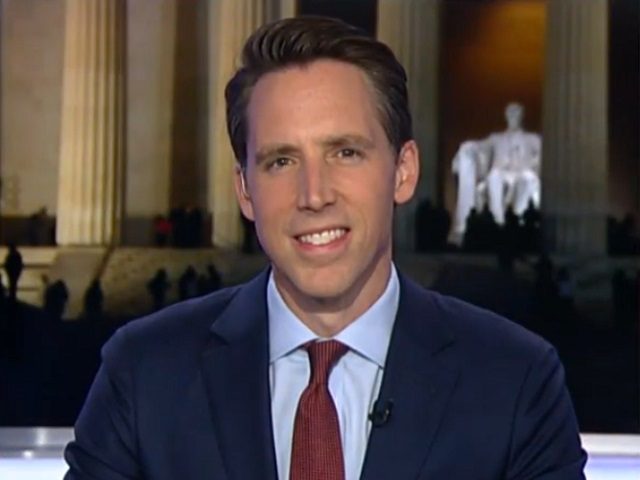Sen. Josh Hawley (R-MO) called the Supreme Court’s Dobbs v. Jackson Women’s Health Organization decision a “wrong righted” and “a watershed moment in American politics.”
“It is a momentous decision. Obviously, it is a total and complete victory for the pro-life cause and for I believe the constitutional text and our constitutional tradition.” Hawley stated during a press call. “I think it’s a very strong opinion.”
“Roe and Casey are completely and totally overruled,” he later added. “There is no remnant of them that remains, and this decision is turned back to the people and their elected representatives.” He went on to call the 1973 Roe v Wade decision a “grave injustice.” Hawley went on to say:
Glad is an understatement. I am ecstatic to see this wrong righted, and on a personal note: Roe v Wade and what I regard as the greatest social justice issue of our time – the rights of the innocent unborn – is really why I got into politics, and it’s one of the reasons my wife and I both got into the law, so this is a big day, this is very momentous.
The next thing I want to say is I really do think that this is going to be a watershed moment in American politics. As you know, the first decision – the 1973 Roe decision – fundamentally reshaped American politics. It ushered in the rise of the Christian Conservative movement. It led to the forming of what became the Reagan Coalition in 1980, and… the response to Roe has decisively shaped American politics for generations now. I think another period of transformative change in American politics is now upon us.
He later noted that the political implications of the court’s ruling are immediate, and there will be a “big sorting out in the states,” adding that Missouri and “a number of other states… have laws on the books – state laws… that are now kicking into effect.” Hawley went on to say:
So I think what we’re going to see is voters weighing in at the states. I predict that many of these blue states like California and others, y’all know which ones they are, I predict the blue states will adopt probably very, very permissive abortion regimes and then many other states, probably the majority numerically will adopt very pro-life regimes, which I support.
I think what will happen is that voters will have a chance to think about that and over time, voters will make lifestyle and life choices around those issues, and it’s a big issue for people and rightly so, it’s a very weighty issue, which is why it’s appropriate people get to weigh in on it. And I imagine there will be some sorting out here in terms of what the laws are, where people live, and so on, and I think that that’s part of what it means to be in a Democracy.
“I would say again that I would hope at the federal level and in the immediate term that we would look at laws where there is a national consensus, and we try to bring consensus where we can find it. I think the pain-capable laws are a good place to start. So I imagine it will proceed on two tracks like that– at the national level where there is a national consensus that exists and, where there’s not, and all of the states that will adopt, I think, a variety of different regimes,” he concluded.
The case is Dobbs v. Jackson Women’s Health Organization, No. 19-1392 in the Supreme Court of the United States.

COMMENTS
Please let us know if you're having issues with commenting.